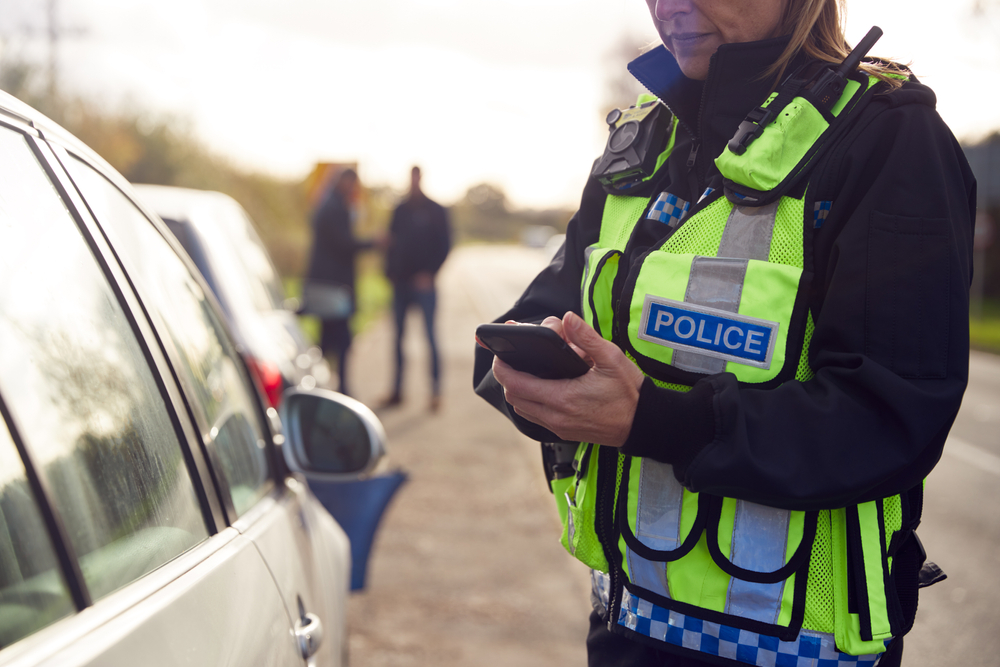
It is legal for a police officer to search you or your car if they have probable cause to do so. According to the Legal Information Institute (LII), this means they must have “a reasonable basis for believing that … evidence of [a] crime is present in the place to be searched.”
Under the protection of the Constitution, the Fourth Amendment shields you from illegal searches or seizures. If the police search you when there is no reasonable suspicion that you have committed a crime, they are violating your rights. If you feel a police officer has violated your rights with an unlawful search, a criminal defense lawyer can help you with your legal case.
Probable Cause Is Subjective
Probable cause is a gray area that is highly subjective. The LII says “probable cause is a concept that is imprecise, fluid and very dependent on context.”
For instance, if a police officer pulls you over because they believe you are driving while intoxicated (DWI), they can legally search you or your car for evidence of alcohol or drugs.
But why do they suspect you are intoxicated? Were you driving erratically? Do they see an open container of alcohol in your car? Or are they just relying on a “gut feeling”? If you feel they did not have a reasonable probable cause to pull you over and search your vehicle, they could be violating your rights.
When does Probable Cause Not Apply?
There is a higher degree of Fourth Amendment protection for a person’s home than for their vehicle. Homes are considered private domains and are given more protection. To search a home, the police will typically need to obtain a warrant first.
For instance, if a police officer smells marijuana coming from your home, that is likely not enough cause to search your home without a warrant. But the same smell coming from your car would likely be enough cause for an officer to search your car.
Probable cause also does not apply to minor traffic infractions or incidents. For instance, if you are pulled over for a broken taillight, an expired registration sticker, or running a stop sign, then a police officer cannot legally search you or your vehicle without your permission.
Are There Exceptions to Fourth Amendment Protection?
There are several exceptions to Fourth Amendment protection. These include:
Search Incident to Arrest
This is the most common exception to Fourth Amendment protection. If you are arrested, the police have the right to search the immediate area surrounding the arrest.
This right is granted so law enforcement can check for weapons that a criminal may try to use against them. They also have the right to search for evidence that a criminal may destroy as soon as the police leave the scene.
Stop and Frisk
If law enforcement has reason to believe a person may be armed and dangerous, they have the right to search that person for weapons.
Emergency Situations
Certain emergency circumstances give the police the right to search without first obtaining a warrant, so they can protect people from immediate danger. These kinds of emergency situations include (but are not limited to):
- Seeing or smelling smoke coming out of a home or private building
- Hearing screams or sounds of duress from inside a house or private building
- Receiving a bomb threat or other threat of violence
Consensual Searches
This means you voluntarily give law enforcement permission to search your person, vehicle, or belongings without a search warrant.
Some people may not want their car, person, or premises searched but feel pressured to allow it. Courts have established that the permission must be entirely consensual. You do not have to consent to a search you are uncomfortable with.
Items in Plain View
This is when someone can see something at a glance from a public place. They must be able to do so without enhancement to normal eyesight, such as infrared cameras or binoculars.
For instance, if the police can see drug paraphernalia in the backseat of your car by looking through the window, they have the right to conduct a search. The search must be based on something clearly visible, not merely the officer’s hunch.
Hot Pursuit
If law enforcement personnel are pursuing a suspect, they have the right to enter a building to catch the suspect. They may also seize any evidence they find while pursuing the suspect of a felony crime.
Airport and Border Searches
Federal customs personnel are legally free to conduct searches of persons or belongings at border crossings and public airports. This exception is to help ensure the safety of the public.
Vehicle Searches
In general terms, courts will give law enforcement more latitude when searching someone’s car versus their house. Because you are driving a car on public roads, there is a priority to protect other citizens.
If the police suspect you of behavior that may be harmful to others while driving, you are more likely to have your vehicle searched.
What Happens If I’m Searched Without Probable Cause?
If you feel the police violated your Fourth Amendment by conducting an unlawful search, a lawyer can help you defend your rights. They may also be able to help you keep any evidence seized in an illegal search from being used against you.
Contact Us for a Free Consultation Today
An attorney may be able to help you determine whether you were the victim of a Fourth Amendment violation. You can contact the Law Offices of Randall B. Isenberg to get a free case evaluation by calling (214) 696-9253.
We have over 30 years of experience and are available 24/7 to take your call. We believe every person has a right to defend themselves against unlawful searches or seizures.










